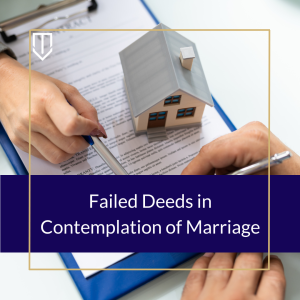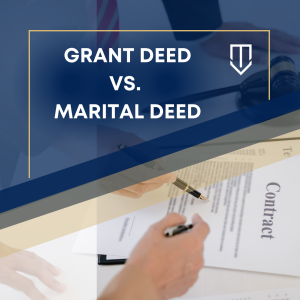 It is an unfortunate fact that many marriages don’t make it out of the engagement stage. While this can be a difficult time for all involved, the situation can only become more dire when real property is involved.
It is an unfortunate fact that many marriages don’t make it out of the engagement stage. While this can be a difficult time for all involved, the situation can only become more dire when real property is involved.
Commonly, one owner of real property will add their partner to the house’s title shortly before the marriage occurs. Usually, they do this because they are under the impression that the marriage is about to happen. But when the partner calls the marriage off, the property owner is now faced with the problem of title. Under the law, the former partner is now an owner of the property.
In these instances, Civil Code section 1590 allows for the property owner to recover their title, although this will usually require filing a quiet title lawsuit. However, quiet title law can be difficult to understand, and in addition, litigants will need to take care not to blow the applicable statute of limitations.
 California Partition Law Blog
California Partition Law Blog


 The deed to a property is the most important document a property owner has. It describes the title and its associated rights while operating as the conveyance of property itself. But not all deeds are the same, especially when marriage enters the equation.
The deed to a property is the most important document a property owner has. It describes the title and its associated rights while operating as the conveyance of property itself. But not all deeds are the same, especially when marriage enters the equation.